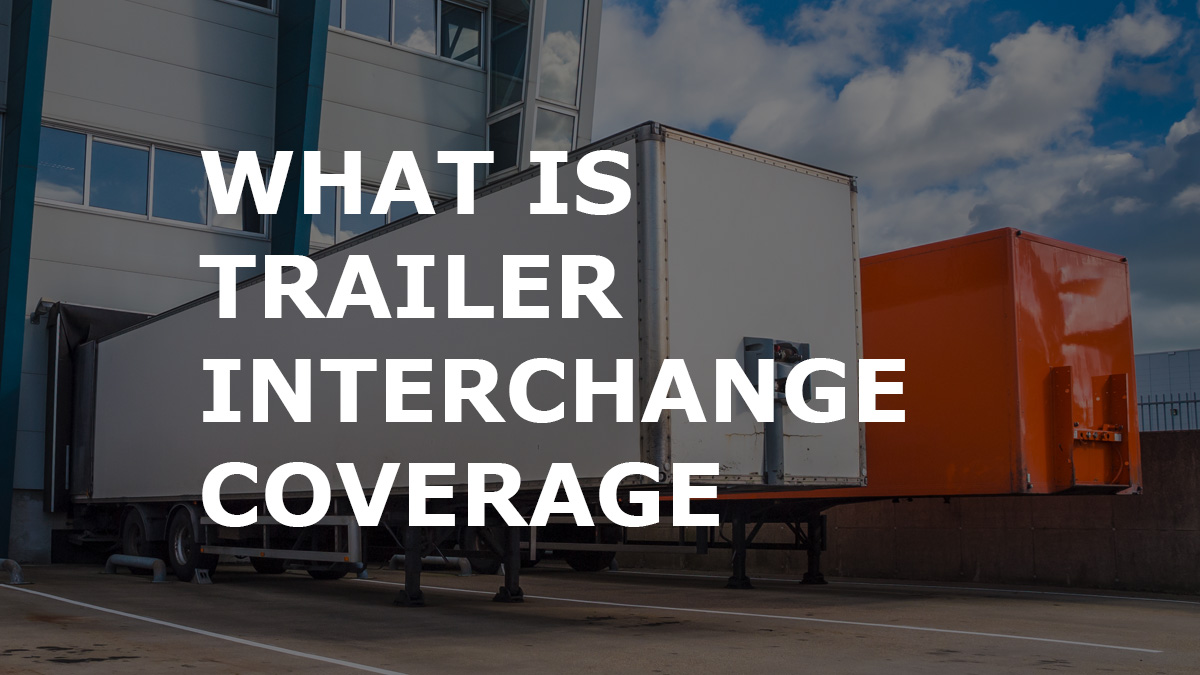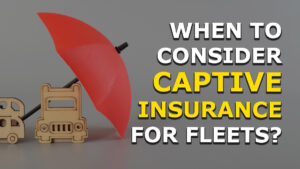Carriers may be required to have trailer interchange insurance coverage to protect yourself while in possession of a container or trailer that you DO NOT own, while in a trailer interchange agreement.
Trailer interchange is simple to understand. It is recommended, and may be required, when you DO NOT own the trailer you are hauling, which most frequently happens with power-only trucking.
For example, many companies that produce goods are often not knowledgeable in trucking logistics but they own their own trailers to make loading and unloading easier.
To transport their products to the end consumer, they hire a power-only carrier that just owns tractors and hire drivers (they don’t own any trailers). Other times smaller fleets might contract these types of loads as their trailers are under maintenance for repairs.
In this relationship, the transport company involved in the shipping process will use a trailer interchange agreement, a contract that organizes the transfer of goods between two transporting parties to ensure it arrives at its specified destination, to complete the delivery.
So, what about the insurance coverage?
What is trailer interchange coverage insurance?
First, it is important to understand that commercial auto insurance policies will not cover equipment that you DOT NOT own.
As we mentioned, when you hook up and haul someone else’s trailer and goods, the interchange agreement often requires additional insurance coverage to protect their trailer in the event of an accident.
In other words, trailer interchange insurance coverage or non-owned trailer coverage functions like cargo insurance.
The main difference between these two policies is how they work.
Non-owned trailer coverage doesn’t require a trailer interchange agreement for the policy to take effect. All that is needed is proof that the container was hooked to the vehicle at the time of loss.
If this is hard to prove, then it is better to select trailer interchange insurance coverage. If you do not have coverage and get in an accident that damages the trailer, the carrier could be liable for the costs of repair or replacement of the trailer.
What does trailer interchange insurance cover?
While trailer interchange coverage is not required by local or federal government, trailer interchange agreements often require it as a part of the contract.
Trailer interchange insurance covers the costs of damages to the trailer in the following scenarios:
- Theft
- Vandalism
- Accidental damage
- Floods & fires
- Loading freight, and
- Unloading freight
To qualify for this coverage, the trailer needs to be in the insured’s possession at the time of coverage. This is where the trailer interchange agreement comes in.
- Trailer owner must have a liability insurance policy to cover damage or theft of the cargo
- Can only be available for tractors and pickups
- Must be one trailer insured for each tractor or pickup
- Trailer interchange coverage is not currently valid in the state of Virginia, additional insurance rider is recommended if going through this state
How Much Does Trailer Interchange Insurance Cost?
This depends on what you choose as the limit and deductible.
The minimum limit for trailer interchange coverage should be at least enough to repair or replace a damaged trailer, but this can vary. If there is a total loss, the insurance company will only pay out the cash value of the trailer.
Then, consider the amount that you agree to pay out of pocket (deductible) to help with the repairs or replacement.
As we mentioned earlier, if you plan to take this trailer into or through the state of Virginia, the carrier must purchase an insurance rider to cover themselves as this coverage is not valid in the state.
An example policy may look like this: Limit = $20,000 for the trailer value; Deductible = $1,000.
If there was damage to this trailer under your control or it was stolen, you pay $1,000 toward replacing the trailer, and your insurance would pay up to $20,000 toward the replacement.
Again, if the trailer was worth more than $20,000, you would be responsible for paying the difference. If the trailer was less than $20,000, then your insurance would cover the full cost after your deductible.
Your alternative with no coverage? You would have to pay all $20,000 (or whatever value of the trailer) yourself.
CNS Insurance can help
If you are interested in this type of coverage, please call CNS Insurance at 717.625.0066 or email us at info@cnsinsures.com.
Need a full Commercial Truck Insurance quote? Expedite the quoting process by filling out a Complete Insurance Quote with all your vehicle and driver information.






